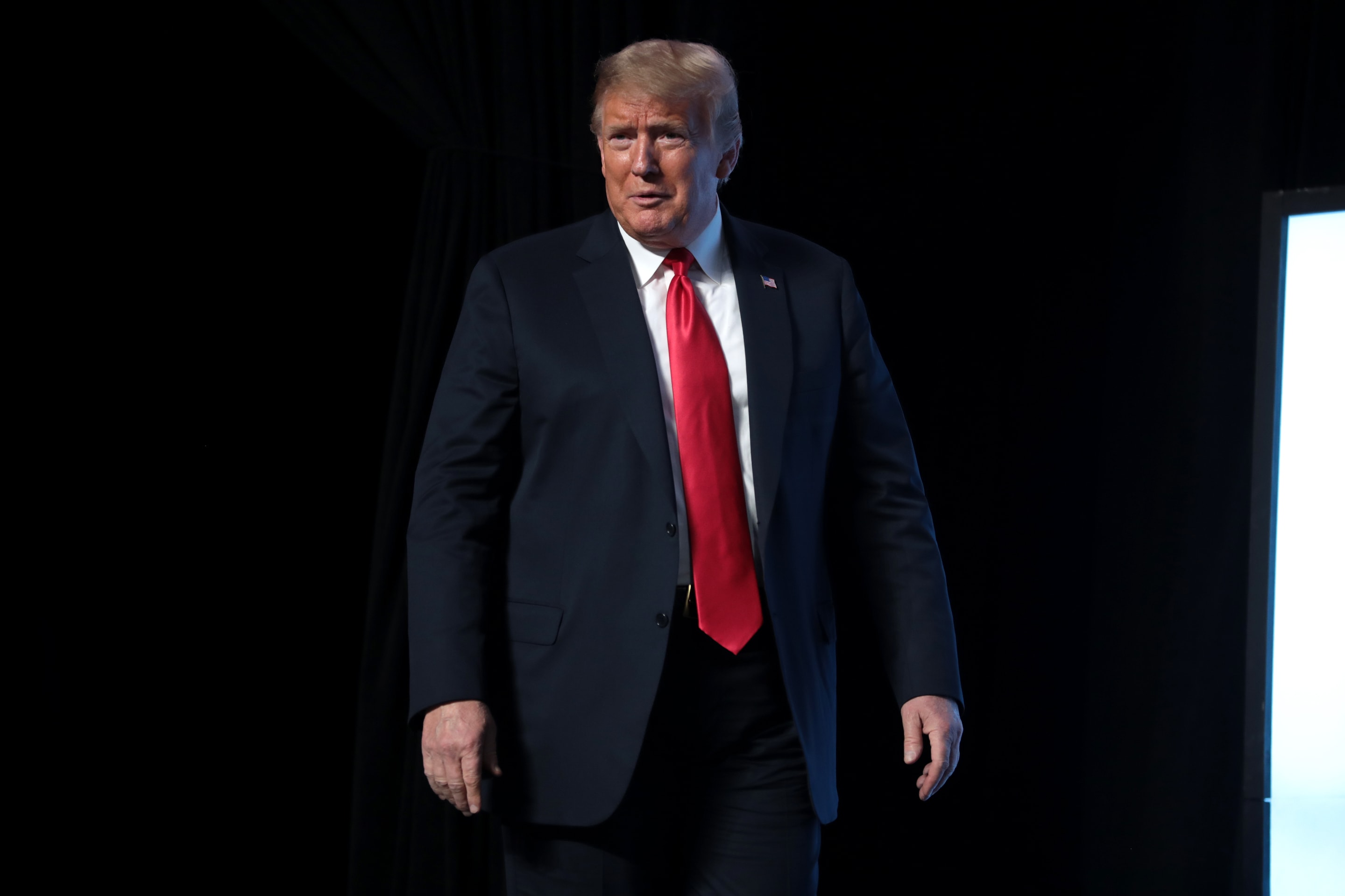
Should the Relationship Between Defense Contractors and the Dept. of Defense be Limited? (S. 1503)
Do you support or oppose this bill?
What is S. 1503?
(Updated April 4, 2020)
This bill — the Department of Defense Ethics and Anti-corruption Act of 2019 — would seek to limit contractors’ influence on the military, constrain foreign influence on retired senior military officers, and assert greater transparency over contractors and their interactions with the Dept. of Defense (DOD). The three specific elements of this bill are outlined below.
CLOSE THE REVOLVING DOOR & RESTRICT CONTRACTOR INFLUENCE
This section of the bill would:
-
Limit the revolving door between senior DOD officials and industry by imposing a four-year ban on giant contractors hiring senior DOD officials and on contractors hiring former DOD employees who managed their contract;
-
Extend the existing prohibition on former military generals lobbying the DOD to four years;
-
Require defense contractors to submit detailed annual reports to DOD regarding former senior DOD officials who they subsequently employ;
-
Raise the recusal standard for DOD employees by prohibiting them from participating in any matter that affects the financial interests of their former employer for four years; and
-
Ban senior DOD officials from owning any stock in a major defense contractor (defined as having over $1 billion of revenue from DOD in a single year) and ban all DOD employees from owning any stock in contractors if they can use their official positions to influence the stock’s value.
LIMIT FOREIGN INFLUENCE
This section of the bill would:
-
Require military service secretaries to submit annual reports to Congress containing the emoluments waivers issued to retired senior military officers to be hired by or receive compensation from foreign governments;
-
Require the Secretary of State’s explicit approval, in consideration of U.S. national security interests, for all former senior officials of the White House and Depts. of State, Defense, and Treasury who seek paid work for a foreign government or non-governmental foreign entity; and
-
Ban all former military and civilian intelligence officers from working for any foreign government or private entity that operates predominantly on behalf of a foreign government.
ENSURE CONTACTOR TRANSPARENCY
This section of the bill would:
-
Require large defense contractors to submit a report of their lobbying activities, including who they’re meeting with, what they’re lobbying about, and what (unclassified) information they’re sharing;
-
Require the Secretary of Defense to publish online copies of all DOD contracts worth more than $10 million, including any relevant and available performance history of the contractor;
-
Make private defense contractors subject to the Freedom of Information Act (FOIA), the federal open records law; and
- Require the military services to maintain public websites with the names, biographies, and any associated financial disclosures, as well as DOD Inspector General reports and command climate surveys, regarding all active and reserve component senior military officers.
Argument in favor
The Dept. of Defense (DOD) has been captured by defense contractors and lobbyists who use their access to DOD to push bloated contracts through. This leads to out-of-control defense spending. By reining in defense contractors’ influence, this bill will help make DOD more accountable for its spending of taxpayer dollars.
Argument opposed
This bill goes too far and applies arbitrary limits to DOD’s engagement with defense contractors. By making defense contracts subject to FOIA requests, it would also make it difficult for DOD to ink contracts with defense companies, which are unlikely to want their trade secrets and sensitive business information to be publicly available.
Impact
Defense contractors; defense lobbyists; current and former DOD employees; current and former military officers; DOD; FOIA; and the DOD Inspector General.
Cost of S. 1503
A CBO cost estimate is unavailable.
Additional Info
In-Depth: Sen. Elizabeth Warren (D-MA) introduced this bill to limit contractors’ influence over the military, constrain foreign influence on retired senior military officers and assert greater transparency over contractors’ interactions with the Dept. of Defense (DOD):
“We need to fundamentally change the way Washington does business and put power back in the hands of the American people – that includes making sure national security decisions are driven only by what best keeps Americans safe, and not by defense industry profit-making. That’s why I have introduced the most sweeping anti-corruption legislation since Watergate, and why today I am introducing a bill to crack down on corporate influence at the Pentagon.”
In a Medium post, Sen. Warren added:
“There are talented and patriotic Americans who work in the defense industry. And there’s no question that public and private collaboration has helped produce real advances in new technology. But today, the coziness between defense lobbyists, Congress, and the Pentagon ― what former President Dwight D. Eisenhower called the military-industrial complex ― tilts countless decisions, big and small, away from legitimate national security interests, and toward the desires of giant corporations that thrive off taxpayer dollars… In 2017, Lockheed alone received more than $35 billion in taxpayer dollars from defense contracts. That’s more than the federal government spent on the entire budget for NASA. Many of these private companies are under pressure to show year over year revenue to their shareholders and investors on Wall Street. That means they are constantly pressuring the federal government for more spending ― regardless of our national security needs. It’s long past time for real reform.”
Sen. Warren argued that defense contractors’ mass hiring of former Pentagon officials and congressional staffers amounts to a lobbying army:
“These giant contractors have deployed an extremely profitable strategy: recruit armies of lobbyists from former Pentagon officials and congressional staffers who stream through the revolving door. Then, get those former officials to use their relationships and access to influence our country’s national security apparatus. We have to call this what it is: corruption, plain and simple.”
Rep. Jackie Speier (D-CA), who intends to introduce similar legislation in the House, says:
“We need to stop making it easy for predatory contractors to make a fast buck off American taxpayers by price-gouging the Pentagon with bloated contracts. Our laws and rules are too lax and give contractors too much power and access. Industry should be a tool of national defense, not the other way around. This bill goes a long way toward fixing that imbalance.”
James Hasik, a senior research fellow at the Center for Government Contracting at George Mason University, argues that this legislation is poorly crafted and would harm national security interests. His sharpest criticism focuses on the application of public records laws to private defense contractors’ contracts with the federal government:
“Who would so hazard his intellectual property, his business strategies, and sundry other reasonable secrets to any willy-nilly Freedom of Information Act request that a gadfly might lodge? This particular provision, if enforced to the letter, would be absolutely disastrous for the market entry and innovation that the Pentagon wants to encourage.”
This legislation doesn’t have any cosponsors.
Of Note: This bill is consistent with Sen. Warren’s vision of a 21st century defense policy that includes “ending the stranglehold of defense contractors” that occurs when “the Pentagon is captured by the so-called ‘Big Five’ defense contractors—and taxpayers are picking up the bill.” It also dovetails with her Anti-Corruption and Public Integrity Act, which is the most ambitious anti-corruption legislation since Watergate.
President Dwight D. Eisenhower called the tight relationship between defense contractors and the Pentagon the “military-industrial complex.” Sen. Warren’s office contends that the military-industrial complex “nudges countless decisions away from legitimate national security interests, and toward the interests of giant defense corporations and contractors that make a profit from taxpayer dollars.”
Defense contractors often recruit former DOD officials through the revolving door to become lobbyists. These former officials then use their relationships and access to peddle influence at the Pentagon and secure lucrative defense contracts for their employers.
The Project on Government Oversight’s (POGO) Center for Defense Information reports that nearly 400 high-ranking DOD officials and military officers went through the revolving door in 2018. They became lobbyists, board members, executives, or consultants for defense contractors — and one in four, including top U.S. military brass, went to work for one of the DOD’s top five contractors. POGO reported that the top 20 defense contractors — including Boeing and Lockheed Martin — hired over 600 former senior government officials, top military officers, Congressional leaders and senior legislative staff in 2018 alone.
Sen. Warren is among several progressive 2020 Democratic candidates who’ve called for a reevaluation of the United States’ military and defense agenda. When Congress passed one of the biggest defense budgets in modern U.S. history with overwhelming bipartisan support in 2019, Sen. Warren was one of ten senators — along with fellow 2020 candidates Sens. Bernie Sanders (I-VT), Kirsten Gillibrand (D-NY) and Kamala Harris (D-CA) — who voted against it.
Sen. Warren herself has also been seen as a champion for defense contractors in her home state of Massachusetts, where General Dynamics and Raytheon are major employers with billion-dollar government defense contracts. In 2015, Raytheon told Politico it had a “positive relationship” with Sen. Warren and interacted with her staff regularly. Sen. Warren was also reported to have been instrumental in fighting proposed cuts to a General Dynamics contract — which Massachusetts lobbyists said ingratiated her with the defense industry.
The Free Beacon reports that Sen. Warren accepted $82,444 in donations from defense industry lobbyists from 2011-2018 and spoke with Raytheon CEO William Swanson during the 2012 Senate campaign. It also argued that she has acted in favor of defense industry interests while in the Senate.
Media:
-
Sponsoring Sen. Elizabeth Warren (D-MA) Press Release
-
Sponsoring Sen. Elizabeth Warren (D-MA) on Medium
-
Sponsoring Sen. Elizabeth Warren (D-MA) Bill Summary
-
Defense News (Opposed)
-
HuffPost
-
TIME
-
Mother Jones
-
Project on Government Oversight (POGO) Report (Context)
Summary by Lorelei Yang
(Photo Credit: iStockphoto.com / Lanier)
The Latest
-
 How To Help Civilians in UkraineHeavy shelling and fighting have caused widespread death, destruction of homes and businesses, and severely damaged read more... Public Safety
How To Help Civilians in UkraineHeavy shelling and fighting have caused widespread death, destruction of homes and businesses, and severely damaged read more... Public Safety -
 The Latest: Israel Evacuates Rafah, Palestinian Place of RefugeUpdated May 6, 2024, 12:00 p.m. EST The Israeli military is telling residents of Gaza who have sought shelter in Rafah to read more... Israel
The Latest: Israel Evacuates Rafah, Palestinian Place of RefugeUpdated May 6, 2024, 12:00 p.m. EST The Israeli military is telling residents of Gaza who have sought shelter in Rafah to read more... Israel -
 Trump Hush Money Trial Enters Third Week, Strategy to ‘Deny, Deny, Deny’Updated May 6, 2024, 11:00 a.m. EST The criminal trial to determine whether Trump is guilty of falsifying records to cover up a read more... Law Enforcement
Trump Hush Money Trial Enters Third Week, Strategy to ‘Deny, Deny, Deny’Updated May 6, 2024, 11:00 a.m. EST The criminal trial to determine whether Trump is guilty of falsifying records to cover up a read more... Law Enforcement -
 IT: Battles between students and police intensify, and... 💻 Should we regulate AI access to our private data?Welcome to Thursday, May 2nd, listeners... The battle between protesters and police intensifies on college campuses across the read more...
IT: Battles between students and police intensify, and... 💻 Should we regulate AI access to our private data?Welcome to Thursday, May 2nd, listeners... The battle between protesters and police intensifies on college campuses across the read more...
 Climate & Consumption
Climate & Consumption
 Health & Hunger
Health & Hunger
 Politics & Policy
Politics & Policy
 Safety & Security
Safety & Security
